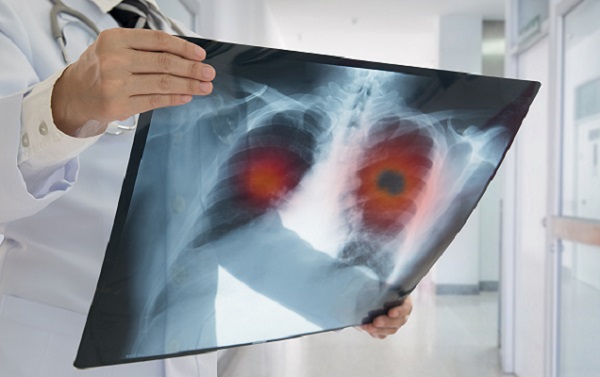Lung Cancer Treatment and Diagnosis

Each lung cancer treatment is a team effort. Different healthcare professionals work together to provide patients with optimal care. Diagnosis is a major part of any treatment plan. This will give way to a better treatment experience. If you want to know more about the types of lung cancer treatment and diagnostic techniques, here are the details.
The treatments
A lung cancer patient will be facing a team of healthcare professionals. The lung cancer treatment will depend on the patient’s general health. It will also depend on the type, stage, location, and size of cancer. Deciding on the type of treatment can be challenging for the patient. That is why the team will make several recommendations first.
Radiation therapy has powerful energy beams for killing cancer cells. The patient will lie on a table. The machine will move around the patient. This will make sure the radiation reaches the targeted areas of the body. An oncologist can combine radiation therapy with chemotherapy treatments. This therapy can also relieve pain in advanced lung cancer patients.
Palliative lung cancer treatment is supportive care. Its goal is to reduce the impact of lung cancer’s signs and symptoms. Going through this treatment will ensure comfort. Palliative care can happen as soon as the patient receives the diagnosis.
Surgery will remove the lung cancer and a border of healthy lung tissue. The oncologist can remove part of the lung or even the entire lung. It depends on the location of the cancer. This lung cancer treatment will include the removal of the lymph nodes from the chest.
Chemotherapy is a drug treatment. It aims to kill cells by introducing the drug through the vein. The patient can also take oral chemotherapy drugs. This lung cancer treatment can last for weeks or months. Rest periods help the patient recover.
Targeted drug therapy concentrates on the abnormalities in cancer cells. Removing the abnormalities causes the lung cancer cells to die. These targeted drugs are for patients with recurrent or advanced cancer. They can also work in patients with specific genetic mutations.
The diagnostic methods
Annual lung cancer screenings are for people with a high risk of developing lung cancer. These use low-dose CT scans. Doctors recommend this screening to older heavy smokers. They also suggest it to those who have already quit in the last 15 years.
Tests to determine the presence of lung cancer are also important in providing diagnosis and the right lung cancer treatment. Sputum checks, biopsies, and imaging tests are the standard ones. These tests will show the type of lung cancer. The oncologist will know what the prognosis and treatment will be.
Testing the stage of cancer can help the doctor decide which type of lung cancer treatment will be most suitable. Bone, PET, CT, and MRI scans will contribute to the staging of cancer. The oncologist will know which scan will be most appropriate for the patient. The wider the spread of the cancer cells, the higher the stage number.
The right lung cancer treatment can change your quality of life
Facing the truth of having lung cancer can be challenging to most patients. It is good to know that a team of different healthcare professionals can help you deal with the process. Diagnosis and the lung cancer treatment itself can both take time. Understanding these two aspects can motivate you to go through and finish your treatments. Improving your health can also enhance your quality of life.
Get more information about Lindenberg Cancer & Hematology Center in Marlton at https://lindenbergcancer.com.
Check out what others are saying about our services on Yelp: Lung Cancer Treatment in Marlton, NJ.
Recent Posts
A surgical oncologist helps diagnose and treat cancer using advanced procedures and often works closely with medical and radiation teams to coordinate care. Many patients hear the term after an abnormal scan, biopsy, or referral, and want a clear explanation of what this specialist does. Understanding how this specialty fits into cancer care can make…
Getting diagnosed with ovarian cancer is overwhelming to say the least, and many patients leave the doctor’s office thinking of questions they wish they had asked. Fortunately, you can bring these questions to your next appointment with the oncologist. Patients are encouraged to ask any questions they have to better understand their diagnosis, explore treatment…
Leukemia treatment aggressively targets cancer cells, but healthy cells can also be affected, leading to side effects. An oncology team can prevent problems early and ease symptoms fast. Clear expectations and communication help patients stay safer and more comfortable during care. Many side effects remain manageable when patients report their symptoms early, and supportive care…
Hematologic disease treatment often begins long before a formal diagnosis, because the earliest warning signs appear in everyday life. Fatigue, easy bruising, or frequent infections may not seem serious at first, yet they sometimes indicate that the blood, bone marrow, or lymphatic system needs attention. Understanding which symptoms matter, how long they last, and when…


